 Photo from Patriot Pros
Photo from Patriot Pros
Originally Posted On: https://patriotpros.com/signs-water-heater-is-going-out/
Water heating accounts for approximately 20% of your home’s energy consumption. Reducing your hot water use, applying energy-saving methods, and selecting an energy-efficient water heater for your house can all help you save money on your monthly water heating bills.
However, your water heater won’t last forever, even with regular maintenance. Fortunately, water heaters won’t just die out without alarm bells. Thus, you’ll need to know and look out for warning signs of a hot water heater going out.
Knowing the signs of a failing water heater, you can identify them and fix the problem before it gets out of hand. This ensures you don’t spend days without hot water due to a dysfunctional water heater.
Whether you own a conventional, tankless, or solar water heater, it’s essential to know the warning signals. Keep reading to learn the signs that indicate your water heater is on its last legs.
Signs Your Water Heater Is Going Out
The newer water heater models are more energy-efficient and durable than the older ones. If you recently purchased your heater, expect it to last for at least 10 years before needing replacement. But after that, it can start developing technical issues that require costly repairs.
Over time, sediment piles up in the heater, affecting its ability to warm water. It erodes the heater, causing its heating parts to fail. This corrosion can result in water leaks that can damage your property.
To extend your heater’s economic life, maintain it regularly. You can get a professional to flush your unit annually. Also, you can use a water softener to prevent sediment buildup that damages water heaters.
Check the manufacturer’s label attached to its upper part to determine your heater’s age. The first two digits on the code were the last numbers of the year when it was produced. If the label is missing, you can use the unit’s brand name and serial number to search the manufacture date online.
If you discover that the unit is old, consider replacing it with a newer model. You’ll save on frequent repairs and lower your energy bills. You’ll also save on space because these newer models occupy less space.
Starts Leaking
Water leaks can be detrimental to your property, so you should prevent them at all costs. If you suspect your water heater might be leaking, take the time to do a thorough inspection. Remember to turn off the gas or disconnect electricity to the unit to let it cool down before you start inspecting.
During the inspection, check all the pipes, connectors, inlets, and screws to ensure they didn’t loosen. Also, check around and on the tank’s base for excessive leaking.
Water should remain in the heating tank and not pool outside. If you notice water leaking and pooling around the unit, take immediate action. This will prevent severe water damage and waste that increases your water bills.
If your heater is leaking due to loose connections, incorrect pressure, or a damaged valve, don’t fret. You can get an expert to tighten the connections, replace the valve, and adjust the pressure.
But if the leaks are due to cracking or corrosion of the tank, you might be required to replace the unit. It occurs due to sediment buildup that eats away at the internal parts of the tank. With corrosion, repairing the unit becomes difficult, so replacing it remains the ideal option.
Before taking any action, call a plumber to help you figure out the root cause of the problem. This way, you’ll know the best course of action.
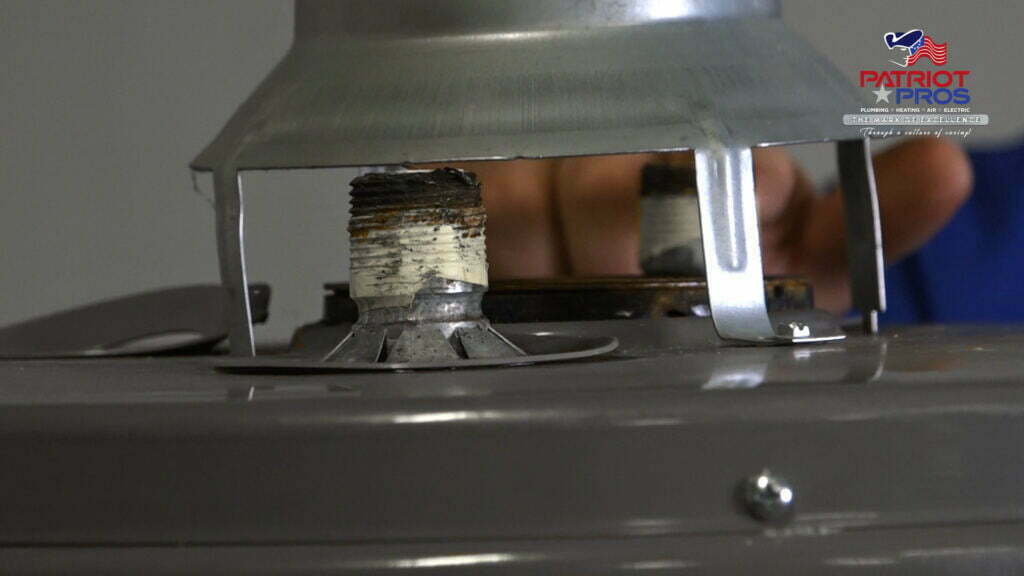
Not Providing Enough Hot Water
A good water heater should supply your household with enough hot water throughout the day. It should serve you and your family when cleaning utensils, bathing, and doing other hot-water activities. If you notice hot water runs out quickly in your home, find out what might be the problem.
If your family is growing bigger and your water heater is small, then supplying enough hot water might be difficult. You’ll need to upgrade your unit to serve your current and future needs. Since water heaters vary in size, get the perfect one for your household.
If this isn’t the problem, inspect your heater to see what might be preventing it from functioning properly. Scale buildup in the heater or pipes connecting to the unit can cause a hot-water shortage. This buildup accumulates over time, leaving less storage space for hot water.
To solve the problem, hire a professional to flush out all the sediment buildup. This will leave your heater sparkling clean, enabling it to perform its functions. Also, your unit will use less energy to heat up water, reducing your energy costs.
Don’t ignore this problem and leave it unsolved for a long time. It’ll get worse, making it difficult to flush out the sediment and leaving you with a clogged and corroded heater. Your unit will be damaged beyond repair, so you’ll have to replace it.
To prevent such problems in the future, upgrade your unit to a tankless water heater. Besides saving space, less maintenance, and efficiency, you’ll enjoy multiple other benefits.
Inconsistent Water Temperatures
If you start experiencing varying water temperatures at home, check out the root cause. It can signal your water heater has underlying conditions that can worsen over time.
To check your heater, start by setting its thermostat to your desired temperature. Mark the present setting with a tape or marker for reference. Then, turn your faucet on and observe the temperatures.
If you realize the thermostat keeps adjusting itself from one setting to the other, it has a problem. Call a professional to replace it and look for any unnoticed issues.
If the thermostat is in good shape, there’s a likelihood the heating elements will have problems. Your professional will examine them and replace any that are broken or damaged. But if they’re damaged beyond repair, they’ll advise you to replace your unit.
Before repairing your water heater, confirm its age. If it has served you for more than 10 years, it would be best to replace it. This will save you the costs and hassles of repairing your unit time and again.
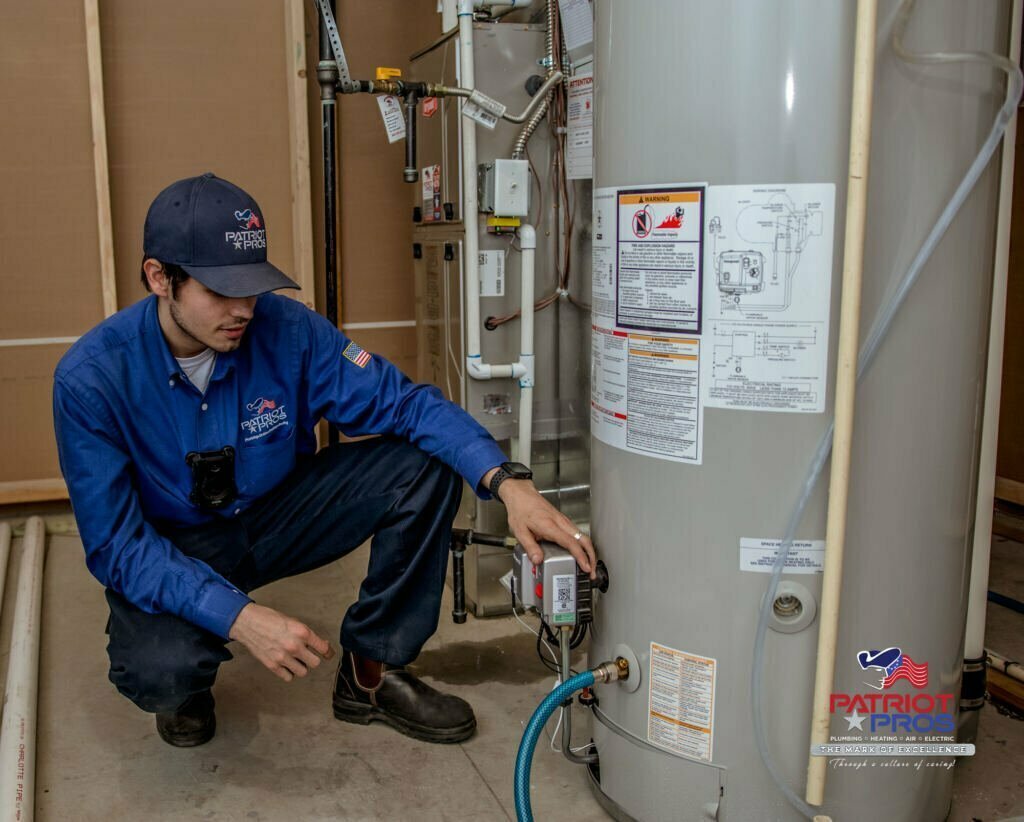
Delivering Smelly or Discolored Water
A good water heater should supply you with hot and clear water. If you notice the water from the faucets is rusty, smelly, or cloudy, your unit might be at fault. The tank’s anode rod might be broken, as it’s responsible for removing rust and killing bacteria in water.
Cloudy water signals mineral deposits in the system, while rusty water indicates there’s rust in the pipes or tank. Strange water odors are a sign of bacteria in the tank.
Water heater tanks have a coating that prevents rust from forming, but it thins out over time. Once it tears away, rust starts forming, resulting in rusty water. Rust might also spread to your drinking water if the problem is left unfixed for a long time.
First, determine whether the discoloration and foulness are coming from the heater or water supply to your home. To do so, run a test by comparing cold water in a clear glass and hot water in a separate one.
If you discover discoloration on hot water only, your water heater has a problem. And if it’s only the cold water that has a rusty color, the water source is at fault. It’s also faulty if odor and discoloration are present in cold and hot water.
Install filters and add softeners to remove minerals from the water before it gets into your taps to fix your water source problem. For water heater issues, you’ll be required to get an expert to help you flush the heater’s tank. When flushing, they can use bleach to eliminate rust and bacteria from the tank.
After thorough flushing, run hot water from your faucets and confirm whether the strange smells and colors are gone. If not, you’ll have to replace the anode rod.
Producing Unusual Sounds
If your water heater is in good condition, it will perform its functions quietly. Otherwise, it’ll produce unusual sounds like whining and pops, signaling a developing problem. Boiling sounds are the most worrying as they indicate pressure buildup and overheating.
These sounds occur when there’s mineral formation and sediment buildup in the water heater’s tank. They make your heater strain when heating water, causing it to produce strange sounds. This increases energy consumption and can create cracks and leaks in your heater with time.
Once you notice the popping sound, turn off your heater immediately to prevent further damage. If you’ve got an electric water heater to turn off the circuit breaker and turn off the gas if it’s a gas heater. After that, schedule an appointment with your plumber to come and fix the issue before it gets out of hand.
The professional will flush your water heater’s system to remove the residue buildup and check it for any other underlying issues. They’ll inform you if the noises are signaling your heater is on its last legs or a reminder that it is time for quality servicing.
If, after flushing, your heater continues to produce odd sounds, it’s high time you replace it. This shows it’s still struggling to function, and it can experience full-blown failure at any time.
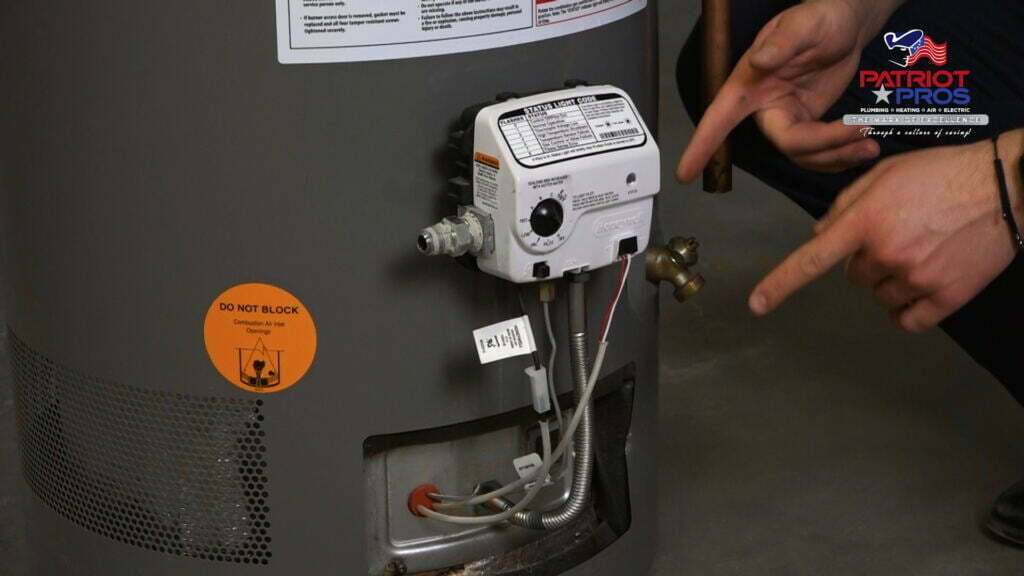
Lower Water Pressure
Changes in water pressure cause reduced water flow in your home. This occurs with the scale or sediment buildup in the water heater or in pipes connected to it.
If you notice the problem, take immediate action to prevent severe issues in the future. Reach out to your plumber to do a thorough check-up and identify the problem’s cause.
If there’s sediment buildup, they’ll drain the tank and eliminate the scale deposits. They’ll use a hot water heater guide and follow the necessary steps to avoid damage. The following are the steps for draining a water heater:
• Step 1: Shut off the water supply to the heater
• Step 2: Turn off the power supply to the heater
• Step 3: Give water adequate time to cool off
• Step 4: Attach the hose to the drain valve and direct it to a good draining location
• Step 5: Check your pressure relief valve
• Step 6: Open the hot water faucets to relieve more pressure in the tank
• Step 7: Open the drain valve to allow water to flow out of the tank
• Step 8: Turn on the water supply to flush the water tank using fresh and clean water
• Step 9: Repeat Step 8 to ensure the tank is sparkling clean and sediment-free
• Step 10: Turn the water valve and the faucets you’d opened earlier off
• Step 11: Refill the tank and turn on the power source to heat your water
After flushing, your plumber will also fix the plumbing that connects to the unit if it has any drainage issues.
Requiring Expensive Repairs
Even the best water heaters develop technical issues over time. However, they’re minor issues that require small repairs.
When aging, your water heater wears out, and you experience expensive problems to fix. With time, these repairs become more expensive than replacing the heater. This is an indicator your water is on its deathbed.
If you’ve got a water heater with such complications, seek advice from your plumber. Let them come and do a thorough inspection of your heater before doing any repair. They will check the plumbing system connecting to the unit, TMP valves, and the thermocouple.
If you’re not handy, you might wonder where the thermocouple is located. It’s placed in the gas control valve, and it ensures the pilot light is lit.
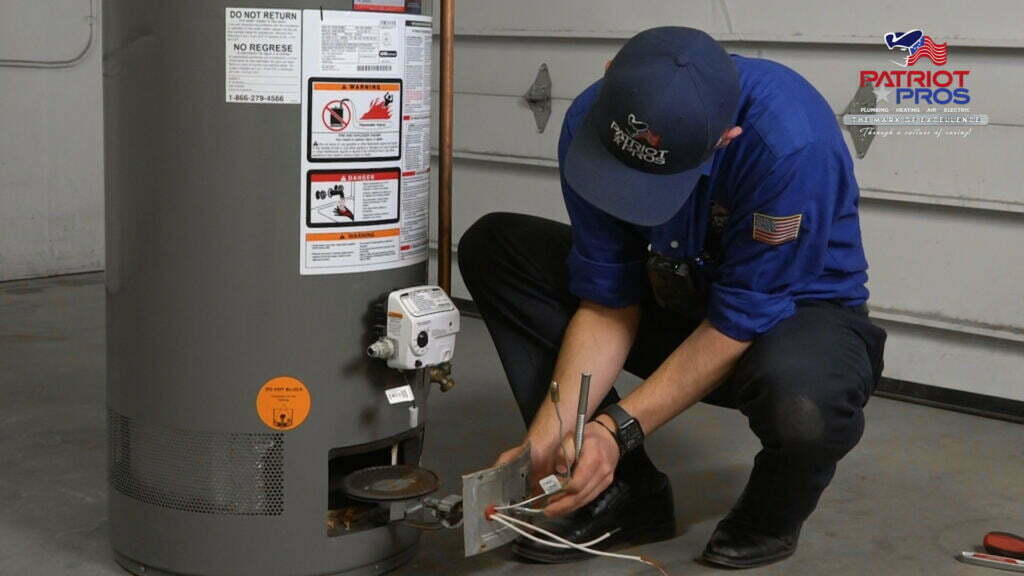
Also, you might want to know what does a thermocouple look like so that you can identify it when checking. It’s made up of wires, tubes, and brackets. The tube is placed above the bracket, and the wires connect with the gas valve under it.
If you discover that your heater’s thermocouple has a problem, you’ll need to clean it. But what’s the proper cleaning for a thermocouple? Here are the steps on how to clean a thermocouple;
• Shut the gas inlet valve and remove the burner assembly
• Clean the thermocouple using an emery cloth sandpaper
• Clean the burner, replace and reconnect the burner assembly
• Light the pilot
If replacing the heater will be cheaper than repairing it, they’ll advise you to do so. When buying your heater, they’ll guide you to ensure you get a quality one. Go for the newest water heaters, as they’re more efficient and durable.
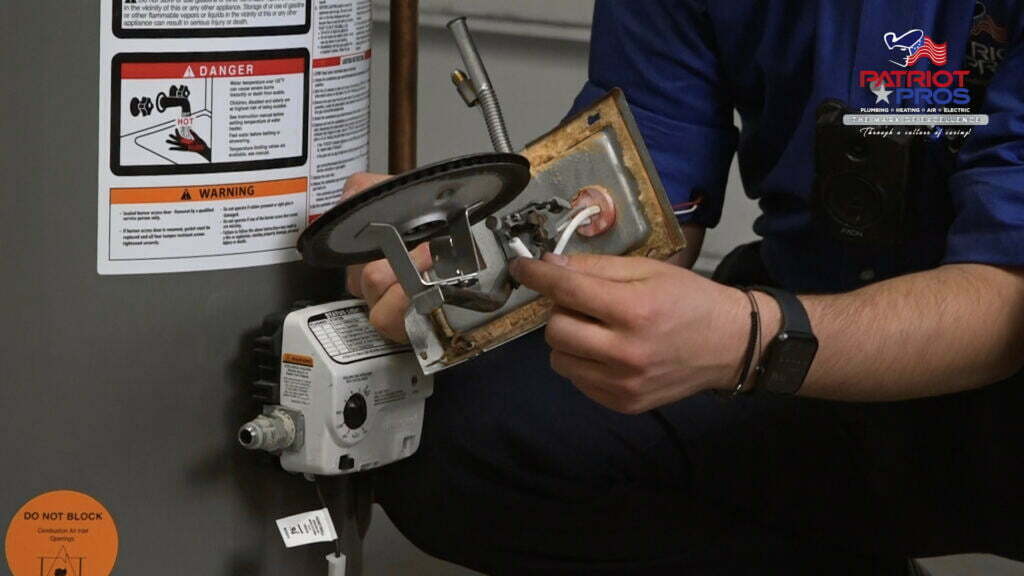
Warning Signs of a Hot Water Heater Going Out
Getting a hot water heater for your home is an excellent investment. Besides providing hot water for showering, it supplies enough water for doing other activities that require hot water. Hence, you can’t afford to live without it.
Learn the above warning signs of a hot water heater going out to know the appropriate time for replacing.
Do you want to repair your bad hot water heater? If yes, at Patriot Pros, we got you covered. We offer plumbing services, including the repair of hot water heaters.
Contact us today for a free consultation.

